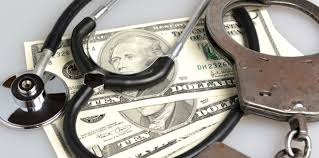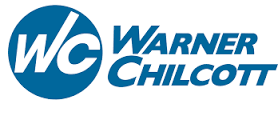Justice Department Charges Pharma President with Kickback Conspiracy
 In the public relations battle following the issuance of the Yates Memo, the Justice Department can now cite one example for the new policy – the recent arrest and charging of Carl Reichel, former President of Warner Chilcott.
In the public relations battle following the issuance of the Yates Memo, the Justice Department can now cite one example for the new policy – the recent arrest and charging of Carl Reichel, former President of Warner Chilcott.
The Justice Department’s new policy got off to a rocky start: in the same week that the Yates memorandum was adopted, the government announced the GM settlement in which no individuals were charged.
To demonstrate its commitment, the Justice Department not only indicted the former Warner Chilcott President, but made sure they arrested him. The Justice Department is now touting this prosecution as demonstration of its commitment to the Yates Memorandum.
On the same date, a Warner Chilcott subsidiary plead guilty and paid a $22.94 million fine for healthcare fraud — paying kickbacks to physicians. Additionally, Warner Chilcott agreed to a civil settlement of $102.6 million for illegal marketing of various drugs. During the investigation, several executives and managers plead guilty and agreed to cooperate with the government’s investigation.
The Yates Memorandum is likely to have a huge impact in the healthcare industry given DOJ’s commitment to prosecute fraud and kickbacks in the industry. As an important step in this process, DOJ announced months ago that it would have criminal prosecutors review all qui tam relator claims for possible criminal prosecution. DOJ is likely to find many attractive criminal cases in the qui tam area in healthcare, defense and government contracting. We are likely to see a number of aggressive criminal cases in these areas.
When you read the allegations against the former President of Warner Chilcott, you can understand why he was charged and why the Justice Department is using this as an example of the prosecution of a high-level executive. The indictment outlines a fairly strong case against Reichel, who appears to have designed and promoted a scheme to increase drug sales by paying doctors for high prescription rates. Specifically, Reichel, along with another executive who appears to be cooperating in the criminal case, masterminded a scheme to reward doctors who prescribed Warner Chilcott drugs by giving them exorbitant speakers fees and other benefits.
Warner Chilcott paid for doctors’ expensive dinners to reward and incentivize them for high prescription rates; also, Warner Chilcott paid high prescribing doctors speakers’ fees even though they rarely gave speeches about any clinical or scientific topics. Warner Chilcott warned doctors to maintain high prescription rates or they would not be paid for subsequent events.
To make matters worse, Warner Chilcott filed false prior authorizations to induce insurance companies to pay for prescriptions and made unsubstantiated marketing claims for another one of its drugs. The prior authorizations were misleading and intended to convince insurance companies to overcome formulary restrictions that favored less expensive drugs for the same illness.
 The Anti-Kickback statute is very broad and covers any kind of “remuneration.” Also, the statute fairly punishes both sides of a kickback – the payor and payee. In fact, during the investigation, one doctor plead guilty and agreed to cooperate for receiving illegal kickbacks.
The Anti-Kickback statute is very broad and covers any kind of “remuneration.” Also, the statute fairly punishes both sides of a kickback – the payor and payee. In fact, during the investigation, one doctor plead guilty and agreed to cooperate for receiving illegal kickbacks.
The Justice Department touted this prosecution as further evidence of its commitment to charging high-level executives for criminal violations. While this was not a “high profile” case, it certainly represents an aggressive approach to criminal investigations and prosecutions. If it is a sign of things to come, DOJ’s policy could have severe implications across a number of industries beyond healthcare.















1 Response
[…] Source: blog.volkovlaw.com […]